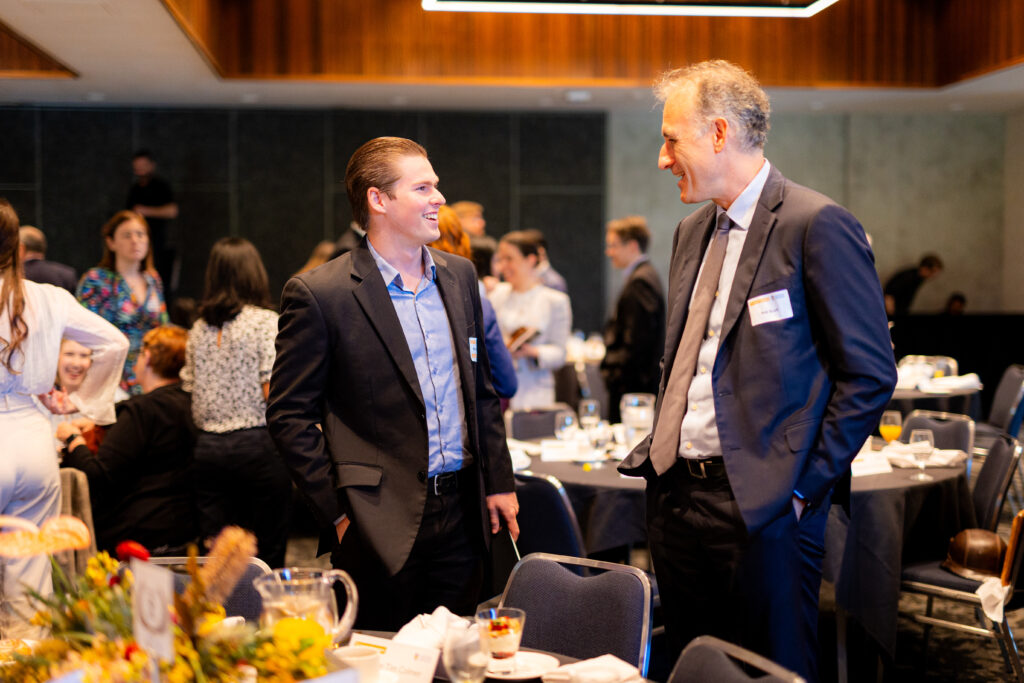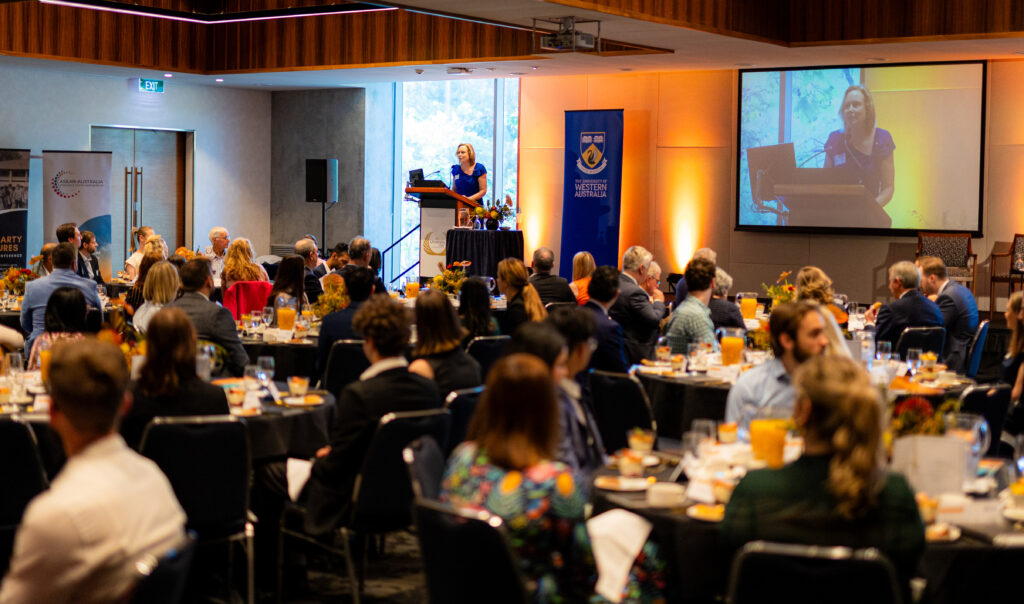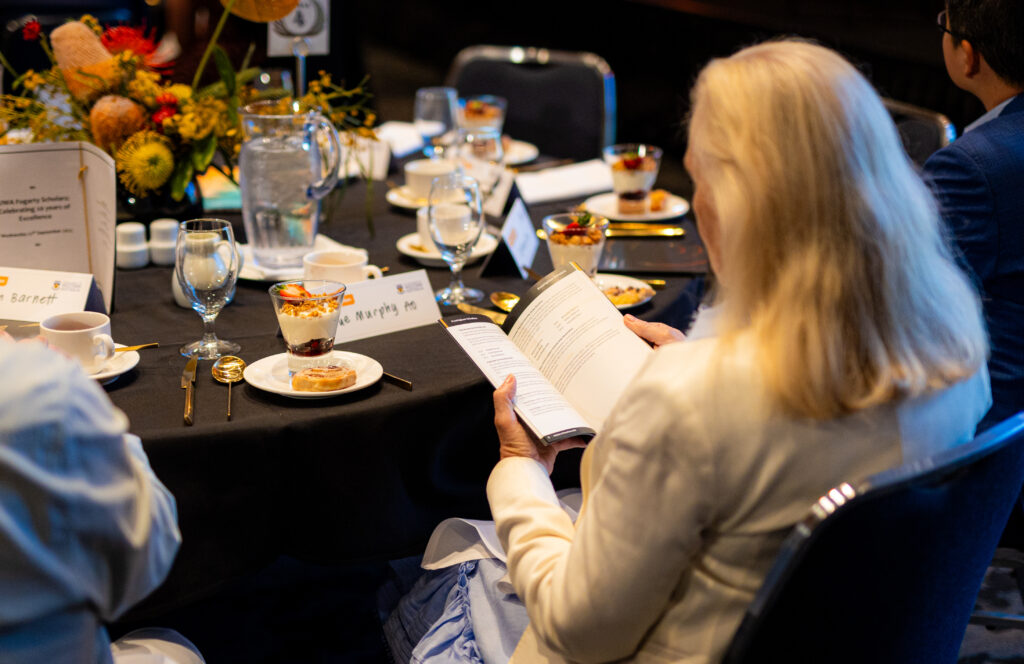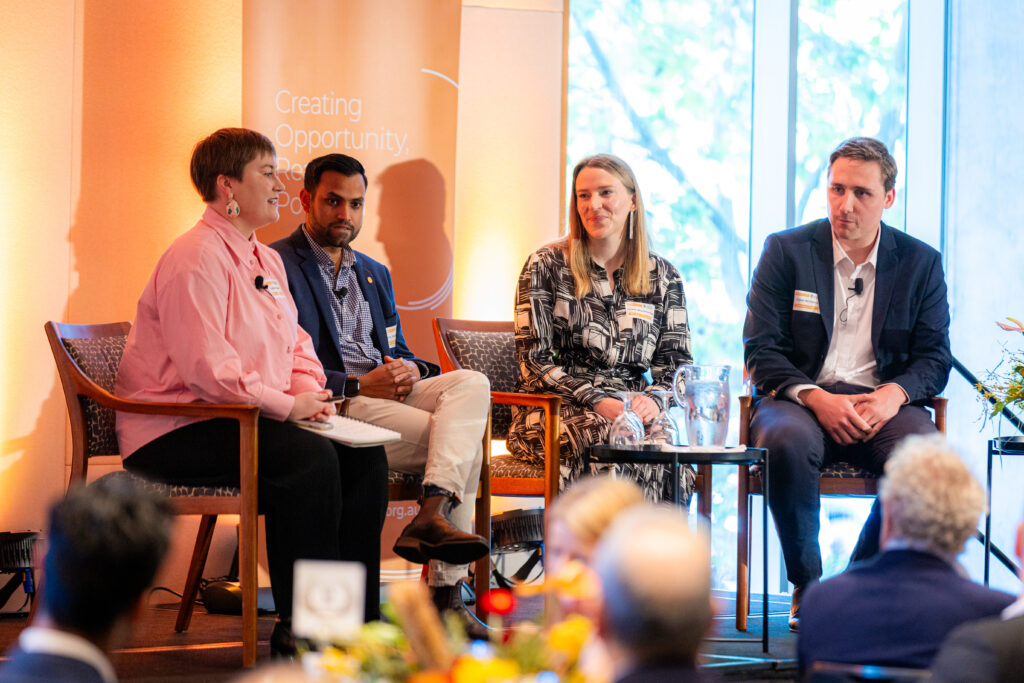Spreading success: Why Australia needs multi-school organisations
Grattan Institute Research
Since its inception, the Fogerty Foundation has recognised the challenges confronting Australia’s – and Western Australia’s – education system. With over 800 schools dispersed across the state, a significant portion, if not all, are struggling to keep pace with the evolving demands of modern education. New research from the Grattan Institute sheds light on these challenges and shows how a different way of organising schools could help each meet the demands of modern education.
This stark reality underscores a fundamental truth: the conventional approach of treating each school as an isolated ‘island’ is no longer viable. Operating individually, these schools lack the collective strength and resources necessary to navigate the complexities of contemporary education. They exist as separate entities, in a sea of challenges, many which are distant from effective collaborative networks or support systems which are enablers for improvement.
In response, a paradigm shift is imperative. Grattan recommends we must move beyond ‘island’ schools and presents the concept of Multi-School Organisations (MSOs) as the answer. An MSO is a concept that aims to improve education outcomes by creating strong networks of schools. Introducing MSOs would help respond to the challenges facing WA’s schools. By uniting clusters of schools under unified leadership structures, MSOs provide the organisational coherence needed to drive meaningful change. They strike a balance between individual autonomy and centralised oversight, fostering collaboration, resource sharing, and collective problem-solving. The Grattan Institute’s research underscores the potential of MSOs as a catalyst for school improvement. By harnessing the collective strength of multiple schools, MSOs can leverage resources more effectively, share best practice, and provide targeted support where it is most needed. This collaborative approach is essential for breaking down barriers to progress and ensuring equitable access to quality education for all students in our state.
Why is this new model worth contemplating? In research done in 2015, a long-standing member of our Board of Trustees, Emeritus Professor Bill Louden AM found that ‘stable, long-term leadership and explicit school improvement plans were aspects which high performing primary schools had in common’. It is hard to find an exceptional leader to stay long-term in every school in the state. MSOs could help. They give new principals a softer landing, and provide a secure leadership base, so positive transformations that begin under one principal are seen through under successive principals.
In 2012 the Fogarty Foundation introduced Fogarty EDvance, a program dedicated to evidence-based professional development for school leadership teams and fostering connections among educators within cohorts. The primary goal was to cultivate a culture of learning and support, where school leaders could glean insights from one another and provide mutual assistance, whilst developing and implementing a comprehensive plan for whole school improvement. By participating in the Program, these groups offer each other a supportive framework wherein they can exchange knowledge, teaching methods, and confront challenges together. Fogarty EDvance, now comprising almost 150 schools from low socio-economic communities, indirectly incorporates many components of the MSO framework, enabling positive transformations – and improved educational outcomes – to be achieved in challenging school contexts.
The Fogarty EDvance School Improvement Program operates on the principle of being driven by the needs and contexts of individual schools and their leaders, ensuring adaptability and relevance. It empowers school leaders to review the evidence of their school’s effectiveness, to pinpoint effective practices and integrate them into their educational settings to address the issues identified, in order of priority. EDvance believes in the transformative power of strong leadership, recognising it as the linchpin for successful whole-school improvement strategies, particularly in fostering high-impact teaching practices. Through professional development and collaborative networks, the Program acts as a catalyst for innovation, collaboration, and greater effectiveness in education.
However, while MSOs offer great promise, they are not an instant remedy. To realise their full potential, MSOs must be supported by robust regulatory frameworks and rigorous evaluation mechanisms. Governments, education authorities, and stakeholders must collaborate to establish mechanisms that hold MSOs fully accountable for their performance and ensure they deliver on their promise of improved outcomes for all students. These efforts should be supported by embedding the common provision of relevant services, allowing teachers and leaders to focus on their core responsibilities at the school site.
The recommendations from the Grattan Institute underscore the importance of trialing Multi-School Organisations (MSOs) across different players in the education system; state, catholic and independent. We support the Grattan recommendation that trials should be led by state and territory governments, with funding and regulatory support from the federal government, as, with all significant reforms, a partnership approach will be needed. By embracing MSOs, Western Australia can nurture greater collaboration, innovation, and excellence, leveraging its high performing schools and leaders, to enhance educational outcomes for all students.
The celebratory breakfast hosted by UWA and the Fogarty Foundation on 27 September champions all that has been achieved since the formation of the UWA Fogarty Scholarship Program in 2003.
A recording of the breakfast celebration is available here.




20 years ago, history was made with the commencement of a partnership between the Fogarty Foundation and the University of Western Australia to establish an elite scholarship program for high achieving young Western Australians; the first ever undergraduate scholarship of its kind in Australia. Fast-forward to September 2023 and we are delighted to be celebrating our current scholars, our alumni and our colleagues at UWA.
The celebratory event to mark 20 years of partnership as part of the Scholarship program championed all that has been achieved since its formation in 2003. Dr Annie Fogarty’s speech at the Breakfast gave the opportunity to reflect on the vast achievements of the Fogarty Foundation Scholars and alumni, which includes several global projects, initiatives, and partnerships.
Attendees enjoyed hearing from keynote speaker Rob Scott, Managing Director and CEO of Wesfarmers, reflecting on the importance of a lifelong love for learning, something which drives his passion to continue to grow and achieve.
This celebration was an opportunity for scholars, alumni, staff, and relevant professionals to reflect on the Fogarty Foundation Scholar programme; as well as look forward to further projects, initiatives and collaborations which may grow within this ever-expanding network of notable individuals. A quality seen in all our Scholars and alumni is the passion and drive to excel in their field and make a contribution to society. As the leaders of today – and tomorrow – we look forward to seeing the increasing impact they will make.
This celebration exemplifies the drive by the Fogarty Foundation to drive sustainable change by helping create a brighter future through education, leadership and raising aspirations.
We are grateful to the University of Western Australia for being such a wonderful partner over these two decades and congratulate all our Scholars, past and present, for their efforts and achievements. As the Foundation’s logo suggests, the change we ignite is a ripple, starting with the youth of today and continuing through strong leadership for tomorrow.
The UWA Fogarty Scholars Program has produced an impressive roster of alumni who are leaders in their fields. From doctors and engineers to entrepreneurs and educators, these scholars are making waves and driving positive change worldwide. Their accomplishments stand as a testament to the power of education, leadership, and community engagement.
We hope you made some new connections at our celebratory breakfast. Stay in touch with us through Facebook, LinkedIn and X; and you can also find all our amazing young leaders through our NEW scholar’s database. Please also enjoy our two latest films, one that promotes our Scholarship program and another that provides some insights into the paths of our alumni, which features six of our Scholars who are now living and working elsewhere in the world. Below is a photo gallery from the celebration breakfast.
Congratulations and welcome to all Cohort 7 schools who will commence the Fogarty EDvance School Improvement Program in February this year. School leadership teams from both primary and secondary, regional and metro and public and Catholic schools will come together in Perth for their first few workshops of the 3 year school improvement journey.
| School | Principal | Location |
| Bluff Point Primary School | Celine Bellve | Bluff Point, Geraldton region |
| Busselton Senior High School | Dainon Coiuzic | Busselton |
| Cassia Primary School | Narelle Ward | South Hedland |
| Como Secondary College | Digby Mercer | Como |
| Darkan Primary School | Eloisa Goss | Darkan, Wheatbelt region |
| Endeavour Schools | Chris Burgess & Jayne Gorbould | Mandurah |
| Greenbushes Primary School | Kylie Loney | Greenbushes |
| Lakelands Primary School | Bradden Mitchell | Lakelands |
| Mullewa District High School | Nicki Patterson | Mullewa, Geraldton region |
| Newman Senior High School | Carolyn Cook | Newman |
| Nollamara Primary School | Bradley Trpchev | Nollamara |
| Sacred Heart Primary School | Steve Gibbs | Thornlie |
| Swan View Senior High School | George Sekulla | Swan View |
| Xavier Catholic School | Travis Bienkowski | Hilbert |
Thank you to all of those in the FED Network for your assistance and support during the recruitment drive for Cohort 7. We are really excited to see where these school leaders take their schools in the next 3 years!
Please contact Georgie Wynne at georgie.wynne@fogartyedvance.au if you have any questions about Cohort 7.
The Fogarty Foundation was proud to recently launch the Report Card for Cohort 3 of Fogarty EDvance, a 3-year whole school improvement program for schools in disadvantaged communities in Western Australia. The EDvance program works to support schools in closing the educational gap for students in lower socio-economic communities.
Distinguished members of Parliament, school leaders, teachers, program partners, sponsors, mentors, program stakeholders and members of parliament joined the EDvance team to celebrate the exceptional achievements of the Cohort 3 schools.
Cohort 3 finished the program at the end of 2018 and their results are very promising. On very visible lag metrics, such as NAPLAN, this cohort of schools has seen material improvements in essential foundational skills for their students across all areas.
There were 13 schools in Cohort 3 of the program, serving 4,600+ students, including:
| – Balga Primary | – Dianella Primary College | |
| – Roseworth Primary | – Warriapendi Primary | |
| – Yule Brook College | – Bentley Primary | |
| – Forrestfield Primary | – St John Paul II Catholic Primary | |
| – Dianella Secondary College | – Southern River College | |
| – Bungaree Primary | – Middle Swan Primary | |
| – Thornlie Primary |
On average, the 12 government schools in the cohort are now at, or above expected performance in over 70% of NAPLAN areas (up from 50% at the start of the program) and on average, the cohort is above expected performance when compared to peer schools.
The primary schools are now, on average, above expected performance in all areas of Year 3 and 5 NAPLAN. At the start of the program, just 2 years ago, this cohort was on average, below or at, expected performance in all areas of NAPLAN except one.
Two of the three secondary schools have seen major growth in their NAPLAN results too – with expected Year 9 performance improving by 0.2 – 1 full standard deviation.
Mr Lee Woodcock, Principal of Thornlie Primary School, spoke about his schools’ experience with the EDvance program and credited a strong improvement plan, regular mentor support, feedback and advice as key factors of their success. Mr Woodcock also made sure to credit his teaching staff on their hard work and commitment and spoke of his renewed enjoyment in writing the school’s annual report since completing the program.
A long time supporter of the program, The Hon. Sue Ellery MLC, Minister for Education and Training, congratulated the schools on their achievements in improving student outcomes and of the importance of strengthening leadership skills in schools.
Fogarty EDvance are currently working with their sixth cohort of schools in 2019 and plan to launch Cohort 7 in 2020, which will extend their supportive reach to over 100 schools in disadvantaged communities in WA.
Read the full Report Card for Cohort 3 here, or you can learn more about Fogarty EDvance here.
For more information, please contact Katie O’Driscoll at katie.odriscoll@fogartyedvance.org,au